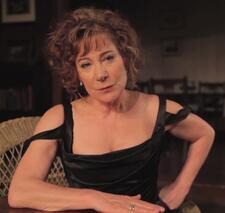Performing Arts: Theater
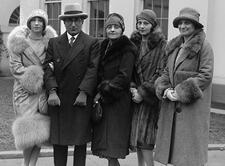
Irene Mayer Selznick
Irene Mayer Selznick was a producer and philanthropist in Hollywood and New York. She wrote in her memoir, A Private View (1983), that Act I was spent under the shadow of her father, the film executive Louis B. Mayer; Act II was marriage to David O. Selznick, producer of Gone With the Wind; and Act III consisted of her career as a Broadway producer. She is known for producing Tennessee Williams’s A Streetcar Named Desire (1947).
She'erit ha-Peletah: Women in DP Camps in Germany
Family played an important role in the lives of Holocaust survivors in DP (displaced persons) camps – in 1947, the birth rate in DP camps was one of the highest in the world. Women served as teachers and eager students, and they were active in the effort to open immigration to Palestine.
Sylvia Sidney
Feisty and opinionated, Sylvia Sidney was quite the opposite of the waiflike victim of social oppression she played in Hollywood’s Depression Era films. While she disliked playing the victim, her vulnerability and working-class persona resonated with audiences. She earned an Oscar nomination for her performance in Summer Wishes, Winter Dreams, took on a comic role as the caseworker in Beetlejuice, and played a sympathetic grandmother in one of the first TV movies about AIDS, An Early Frost.
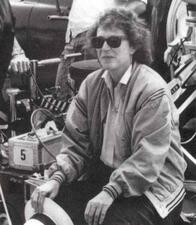
Joan Micklin Silver
Award-winning director and screenwriter Joan Micklin Silver, born in 1935 in Omaha, Nebraska, wrote and directed the 1975 barrier-breaking independent film Hester Street, which sparked an interest in the lives of immigrant Jews. She also directed Crossing Delancey (1988), five other feature films, and several films for television.
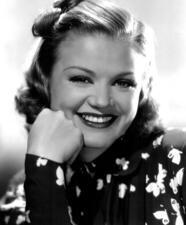
Simone Simon
Simone Simon was a prolific international film star, known for her iconic appearance and voice. Simon spent her childhood in Marseilles and Madagascar and attended schools in Berlin, Budapest, and Turin before making her film debut in 1931. She became popular in France and Hollywood for her mysterious, vulnerable, and seductive acting style, and made over thirty-eight feature films in her career.
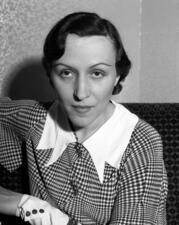
Berta Singerman
Berta Singerman (1901-1998) was an Argentine actress and reciter of poetry, famous throughout the Ibero-American cultural world. Born in Russia to a family of traditional singers (chazanim), she immigrated to Buenos Aires, Argentina, when she was four years old.
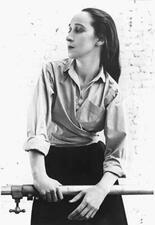
Anna Sokolow
Anna Sokolow (1910-2000), an American dancer and choreographer of Russian-Jewish descent, danced with the early Martha Graham Company and created many international dance-theater works of social and political significance.
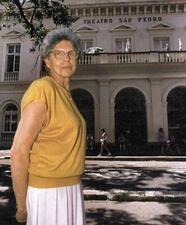
Eva Sopher
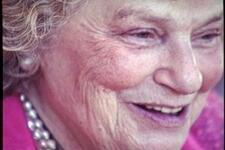
Viola Spolin

Madame Goldye Steiner, aka Gladys Mae Sellers
Madame Goldye Steiner was the first known African-American woman singer of khazones, or Ashkenazi Jewish liturgical music. She was the only known African-American woman in the khaznte artistic movement in which non-synagogue audiences experienced khazones, sung by women in concert halls, on the radio, and on gramophone recordings.
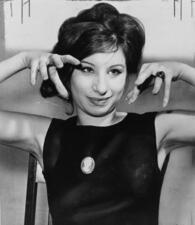
Barbra Streisand
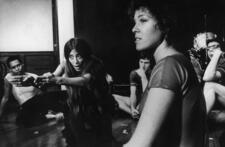
Elizabeth Swados
Elizabeth (Liz) Swados was an American composer, writer, and theatrical director. Best known for her 1978 Broadway musical, Runaways, Swados created a diverse body of work that included novels, poetry, plays, music, and musicals.
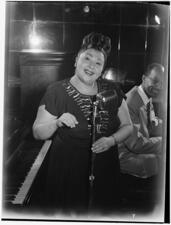
Sylvia Blagman Syms
Sylvia Blagman Syms was a gifted jazz singer who earned praise from Billie Holliday, Frank Sinatra, and Duke Ellington. In 1949, she was discovered by Mae West, who became a significant teacher and influence on Syms’s intimate storytelling performing style. Sym’s went on to record fifteen major albums and tour the United States and World before dying of a heart attack.
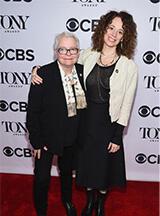
Rebecca Taichman
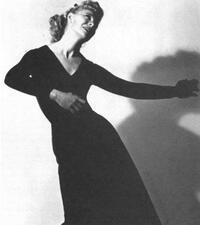
Helen Tamiris
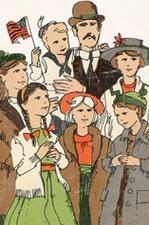
Sydney Taylor
Sydney Taylor as the author of the beloved All-of-a-Kind Family chapter book series, about five memorable and distinctive sisters growing up in a warm and loving Jewish household in early twentieth-century New York.
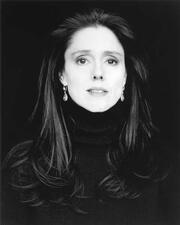
Julie Taymor
Julie Taymor is an award-winning theater, opera, and film director best known for being the first woman to win a Tony Award for directing a Broadway Musical: The Lion King.
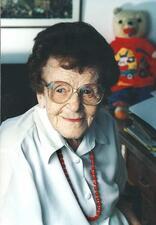
Yemima Tchernovitz-Avidar
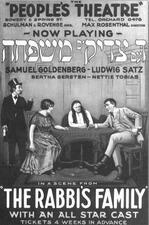
Theater in the United States
For over a hundred years, Jewish women have been involved in the American theater as writers, actors, directors, designers and producers. The vitality of the Yiddish theater, the splendor of Broadway, the rich tapestry of the regional theater, and everything in between, all owe a debt to the Jewish women who have given of their talents, their energy, their drive, and their dreams.
Sarah Treem
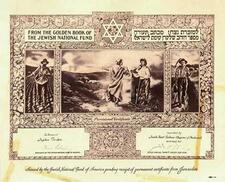
Sophie Tucker
Vaudeville legend and Broadway star Sophie Tucker defied convention with her saucy comic banter and music. Tucker became famous internationally for her singing performances and delighted audiences throughout America and Europe with her rendition of “My Yiddishe Momme.” Tucker was proud of her Jewish identity and created the Sophie Tucker Foundation, which supported various actors’ guilds, hospitals, synagogues, and Israeli youth villages.
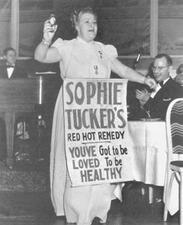
Vaudeville in the United States
Jewish women in vaudeville helped to cultivate a unique American Jewish identity. Headliners Sophie Tucker, Belle Baker, and Fanny Brice were prominent, as were performers such as Nan Halperin and Nora Bayes. Molly Picon was a star of Yiddish theater, and Sarah Bernhardt a star of the stage. The reign of Jewish female vaudevillians ended in the 1930s, but their voices continue to be heard.
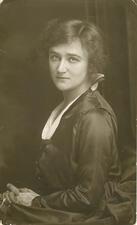
Salka Viertel
Salka Viertel was an influential actress, writer, and organizer of Jewish European immigrants in Hollywood. Viertel co-wrote screenplays for several Greta Garbo films. Her Hollywood salon welcomed émigrés such as Thomas and Heinrich Mann, Bertolt Brecht, Fred Zinnemann, Arnold Schoenberg, and Reinhardt.
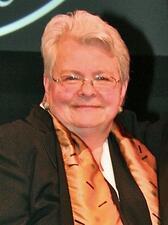
Paula Vogel
